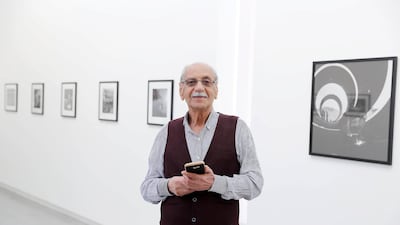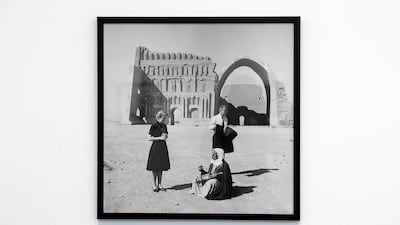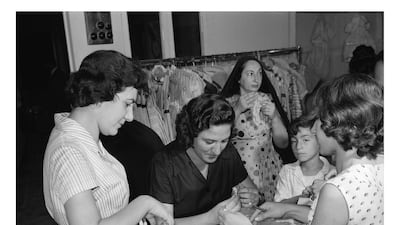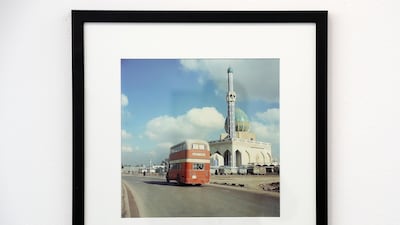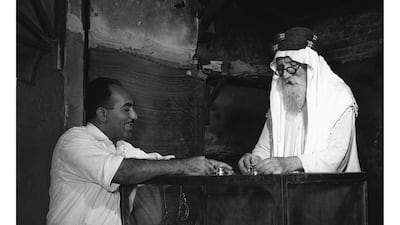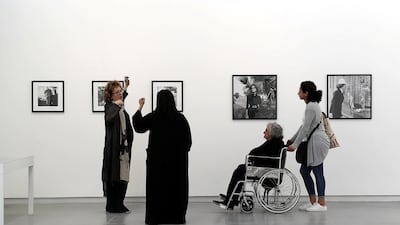One of Iraq's most celebrated photographers, Latif Al Ani, has died at the age of 89.
Known by many as the "father of Iraqi photography", Al Ani was famed for documenting daily life in Iraq during the country's "golden age".
Al Ani’s grandson, Abdul-Latif Mustafa Abdul-Latif, confirmed the death to The National.
Four months ago, Al Ani was diagnosed with cancer of the bone marrow, said Abdul-Latif. He had receiving medical treatment at Baghdad Medical City hospital, where he died on Thursday.
His wife and two sons died years ago, said Abdul-Latif.
“It is a big loss not only for us, but for all Iraqis,” he said.
Al Ani first picked up a camera in 1953, initially as a hobby, and the photographer went on to carve out a decades-long career chronicling life in his native country.
At a time when Iraq was forming into a new republic, Al Ani captured daily life as a site of modernity’s contrasts: old meets new, East meets West.
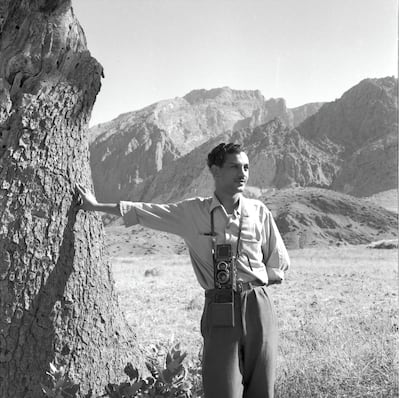
From 1954 until the eve of the Iraq-Iran war in 1980, he chronicled life in the rapidly modernising Iraqi republic, a period now remembered nostalgically by some as a cosmopolitan time when an independent Iraq, fuelled by oil revenue, briefly became a place that looked to the future with optimism and ambition.
The photographer from Baghdad cemented his art in the fabric of the nation when he founded the photography department at the Ministry of Education in 1960 and later became director of photography at the Iraqi News Agency.
Al Ani's grandson
In 2015, the Ruya Foundation, an Iraqi cultural foundation, staged an exhibition of his photographs for the Iraqi Pavilion at the Venice Biennale, and interest in his work picked up internationally.
In 2017, at the Les Rencontres d'Arles, he was selected as the winner of the Historical Book Award from a shortlist of 15.
In 2018, his photographs came to the UAE. The Sharjah Art Foundation hosted Al Ani's largest show since the 1960s, in a retrospective curated by Hoor Al Qasimi.
When in the UAE for the launch of the exhibit, Al Ani alluded to the importance of witnessing history, no matter the quality of the photograph.
“The second you capture an image it cannot be retaken, so it’s important to document. Regardless of whether it’s good or not, it’s important to keep it for the future generations to see it. It’s a history and history is important to document,” he said.
Sinan Mahmoud in Baghdad contributed to this report.
